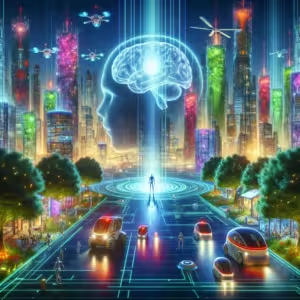Key Characteristics of Autonomous Agents:
- Independent Decision Making: Autonomous agents can assess a situation and choose the best course of action without human intervention. This involves analyzing data, predicting outcomes, and making choices based on their programming and learned experiences.
- Goal-Oriented Action: These agents are designed with specific goals in mind. Whether it’s managing your schedule, conducting research, or controlling a robot in a factory, they work towards achieving their objectives.
- Learning and Adaptation: Autonomous agents are not static; they learn from their interactions and experiences. This allows them to refine their strategies, improve their performance, and become more effective over time.
- Environmental Interaction: Many autonomous agents are designed to interact with the real world. This could involve controlling a physical robot, navigating a virtual environment, or responding to changes in their surroundings.
Applications of Autonomous Agents:
The potential applications of autonomous agents are vast and span across various domains:
- Personal Assistants: Imagine an AI assistant that not only responds to your commands but anticipates your needs and proactively manages your daily tasks.
- Customer Service: Autonomous agents can handle customer inquiries, resolve issues, and provide support 24/7, improving efficiency and customer satisfaction.
- Robotics: In manufacturing, logistics, and even healthcare, autonomous robots can perform tasks that are dangerous, repetitive, or require high precision.
- Research and Development: Autonomous agents can accelerate scientific discovery by analyzing vast datasets, conducting experiments, and identifying patterns that humans might miss.
- Gaming and Entertainment: In video games and virtual worlds, autonomous agents can create more realistic and challenging opponents or non-player characters that enhance the user experience.
Examples of Autonomous Agents in Action:
- Self-driving cars: These vehicles use a combination of sensors, AI, and autonomous navigation systems to perceive their surroundings and navigate roads without human input.
- Automated trading systems: In finance, autonomous agents can analyze market data and execute trades based on pre-defined strategies or learned patterns.
- Personalized learning platforms: AI-powered educational systems can adapt to individual student needs, providing customized lessons and feedback.
Ethical Considerations:
As autonomous agents become more prevalent, it’s crucial to address the ethical implications:
- Bias and Fairness: AI systems can inherit biases present in the data they are trained on, leading to unfair or discriminatory outcomes.
- Accountability: Determining responsibility when an autonomous agent makes a mistake or causes harm is a complex issue.
- Job Displacement: The automation potential of autonomous agents raises concerns about job security in certain sectors.
The Future of Autonomous Agents:
The field of autonomous agents is rapidly evolving. As AI technology advances, we can expect to see even more sophisticated and capable agents that will further integrate into our daily lives. This will bring new opportunities and challenges, requiring careful consideration of the ethical and societal impact of these powerful technologies.
Autonomous agents are poised to revolutionize the way we live and work. By understanding their capabilities and addressing the associated ethical considerations, we can harness their potential to create a more efficient, productive, and innovative future.



